The World Health Organization (WHO) lacks the financial and executive power to respond to pandemics like the current one, the co-chairs of the independent panel investigating the global response to COVID-19 have warned, in which China also receives criticism
Former Liberian President Ellen Johnson Sirleaf and former New Zealand Prime Minister Hellen Clark, who lead the panel, pointed out at a press conference prior to their intervention in the WHO Executive Committee (meeting this week) that it is necessary to reform the functioning of this body of United Nations to prevent the current health crisis from repeating itself.
“The WHO does not have the power to order anything or to investigate. When a threat arises, all you can do is ask and hope to be invited, and we wonder if this is enough, “said Johnson Sirleaf, awarded the Nobel Peace Prize 10 years ago.
WHO, without resources for the work entrusted to it
When pandemics such as the one that caused COVID-19 arise, “the WHO is looking to lead and coordinate, but it is not equipped with the authority or the necessary funds to do so,” he said, recalling that reports prior to the appearance of the coronavirus already they warned of a world unprepared for future pandemics.
Clark and Johnson Sirleaf present the preliminary report of the panel to the Executive Committee of the WHO, although the final text will be published in May, on the occasion of the general assembly of the body led by director general Tedros Adhanom Ghebreyesus.
The report also denounces that “China’s local and national health authorities could have applied stronger public health measures in January.”
“The municipal authorities of Wuhan (the Chinese city where the first infections were identified) made public 27 cases of an ‘unknown pneumonia’ on December 31, with a delay of a week since they were identified,” and no lockdowns were issued until weeks later, on January 23, Clark recalled.
The document also highlights that the WHO did not declare an international emergency until January 30, and did not officially consider the crisis a pandemic until March 11, when there were already 118,000 cases worldwide and 4,000 people had died.
“It took a month since the alarm went off in Wuhan until the international community reacted, and even then in many countries the emergency was not strong enough, so COVID-19 continued to spread,” Clark lamented.
Latin American presence on the panel
The investigation panel, created with the approval of the WHO but independent from that body, is made up of thirteen experts, including former Mexican President Ernesto Zedillo and former Colombian Finance Minister Mauricio Cárdenas.
Clark stressed that in its four months of work, the panel has interviewed more than a hundred people, linked to the response to the pandemic in different countries, and has consulted reports from the media, academies, civil society institutions and governments. .
Johnson Sirleaf affirmed that the objective of the panel is not “to distribute blame, but to advise to see what can be improved, and to make concrete recommendations so that the world responds to future pandemics faster and better”.
“It is time for countries to invest in real change, in preparation for pandemics, and the six trillion dollars that the crisis cost last year are enough argument,” said the African.
The WHO agreed at its last annual assembly, in May 2020, to create an independent panel to investigate possible failures in the response to the pandemic, after some countries, especially the US and Australia, criticized its slowness in the first weeks and excessive acquiescence with China.

